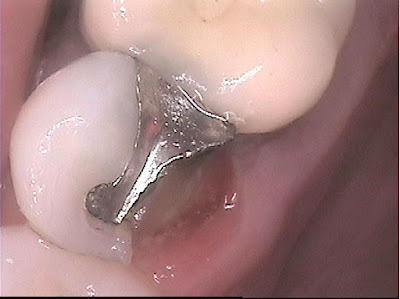There is a phenomenon known all too well by dentists in private practice – the predictably unpredictable
dental emergency that requires immediate attention. All too frequently, the patient who calls my office with an urgent problem, had an inkling that something was amiss for quite awhile. But he or she often delayed making the call in the the hopes that said problem would dissipate given enough time.
Yet, when necessity dictates immediate action (i.e. “I can’t take this pain any longer!”) and the call for help is made, yesterday is never soon enough. The patient in acute distress is ready to drop everything to get relief, regardless of time demands. My office staff will “move mountains” (or at least juggle the schedule) to make me available.
Why Toothaches Hurt So Much
A
severe toothache can be a harrowing experience, and is in many ways unique from your body’s other aches and pains. The intensity of tooth pain can be extraordinary with severity rivaling true neuralgia (intense neurological pain of almost unparalleled proportions).
And, a painful tooth is literally in your head. That fact offers you little opportunity to find a comfortable position for to neutralize the waves of discomfort, as opposed to a painfully sprained foot, for example, which you can elevate and use ice packs to get some sort of reprieve. Additionally, your teeth have an abundance of neural connections to the pain centers in the brain. This seems to amplify the noxious “
distress signals.”
The face and head, including your teeth, are richly served by the
nervous system and make for an exquisitely sensitive and responsive anatomic region.
This is one of the “benefits” of being at the top of the evolutionary ladder.
For all that make your teeth especially sensitive to painful stimuli, they are also much like any other part of the body; namely, they can experience transient discomfort that can dissipate almost as quickly as it arises.
Aches and pains are a part of an active lifestyle (at least for those of us over 40!) so why should teeth be any different? I’m sure you are familiar with the a sudden wince when biting into something unexpectedly hard, or the piercing jolt when chewing ice cold fruit or taking too big a mouthful of ice cream.
Photo credit: www.michaelsinkindds.com/





